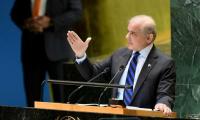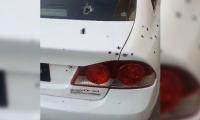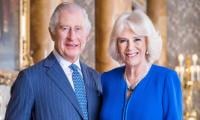KARACHI: Indus Motors, a leading automaker, initiated a massive scrutiny drive to root out network that books cars in bulk and resells them on premium to consumers, sources said.
The sources said Indus Motors Company (IMC), known for its flagship Toyota brand, started the process to verify customers, who recently booked 1,300 cars in order to discern between genuine buyers and resellers.
“Once the exercise is finished, the company would end up cancelling the suspected bulk bookings,” an official told The News on the condition of anonymity. The car demand outpaces supply due to production constraints in the market dominated by all three Japanese players, including IMC, Honda and Pak Suzuki.
The shortfall paves the way for investors who book automobiles in bulk and resell them to consumers on additional charges, known as ‘own money’ in vernacular. Industry officials said ‘own’ is variable, but it revolves around 10 percent. So, a consumer, who wants an urgent delivery, ought to bear this extra payment.
Usually, an automaker tries to keep the delivery time below two months to curtail financing cost, they added. “In this particular case, Toyota Indus is bearing KIBOR (Karachi Interbank Offered Rate) plus two percent on delivery after two months,” an industry official said.
“Actually, investors or dealers cause a stretch in delivery time.” Under the new auto policy, automakers are bound to money off the final price, if delivery time is extended to more than two months.
The official said one of the reasons behind Toyota’s drive is to contain its rising finance cost. But, the analysts also foresee a corrosive effect on Toyota sales, which was already down six percent to 59,911 units during the last fiscal year.
Zeeshan Afzal at Insight Securities argued that there might be a dent in the sales in the short-term. “But I think there won’t be an impact in the long-run,” he said. Industry officials said the initiative is a move to control reduction in market share; following the arrival of new entrants.
“One fine day, every one has to follow suit to fight off new competition,” analyst Rai Omar at Topline Securities said. “Delivery time has to be shortened, while prices should become more competitive.”
During the last fiscal year of 2016, total auto production remained at 1,630,735 units. In March 2016, the government unveiled its Automobile Development Policy 2016/21, which provides various incentives for automakers entering the market, such as reduced import taxes on parts.
An analyst said Pakistan being the sixth largest populated country offers a huge potential for growth to global carmakers and at least four international players are keen to make investment.
Some analysts believe the size of the market will almost double to half a million units by 2025.
French company Renault this week signed an agreement with the UAE's Al-Futtaim Automotive to assemble and distribute its vehicles in Pakistan.
Renault sees Pakistan as a fast-growing market with a 10 percent annual growth rate.
Earlier, South Korean firms, Hyundai and Kia, also showed their interest to collaborate with Nishat Group and Younus Brothers to set up manufacturing plants. German Audi already approached the Board of Investment through its local authorised dealer with a proposal to start an OEM (original equipment manufacturer) plant.
An undated image of the Honda Atlas Cars plant. — AFP/FileKARACHI: Honda Atlas Cars Limited has officially...
Participants, officials pose for a group photo at "AIM’" event. — ReporterKARACHI: Martin Dow Group underscored...
Special Assistant to Chief Minister of Sindh for Investment and Public-Private Partnership Syed Qasim Naveed Qamar...
This handout photo, released on April 10, 2025, shows a generic view of the Dubai Lynx Awards ceremony at the Emirates...
A view of panel discussion on "How Industries Can Go Carbon Negative and Promote Sustainable Practices" at UCP, April...
Pakistan can benefit from trade diversion, emerge as supplier of textiles, surgical instruments or agricultural goods







